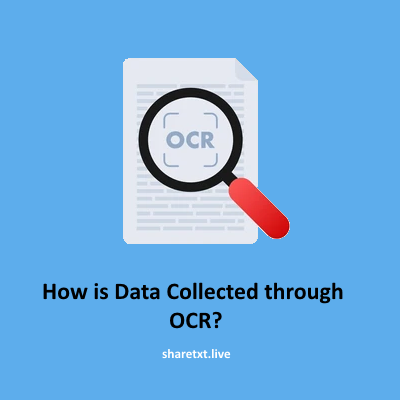Your bio is the first thing that a visitor sees and observes, before they makes up their mind on whether to work with you or not. Therefore, it has to be convincing and impactful.
Bios are short, but they hold the power to make people trust your words, claims, and expertise.
But unfortunately, not all bios are written to this standard. Thus, they sometimes are the reason behind lost opportunities.
As such, it can show your value in seconds, or cause your clients to lose interest just as fast.
So, if you want to write a short, impactful, and professional bio, then here is a quick guide for you.
8 Practical Steps To Help You Write Professional Bios
Here are 8 simple yet professional and useful steps that you definitely need to follow if you want to boost the impact of your bios while keeping them short and effective.
1. Know Where You're Using It
Before you start writing your bio, first decide where this bio will appear. I mean, you have to be clear about which platform you are writing the bio for.
Bios are usually written for a company website, social media profile, or a freelance portfolio .
Remember, each platform demands a different tone and length. Thus, pasting a generic version on each site can never assure you of any visibility or engagement. Thus, your bio has to be relevant to platform where it is used.
Therefore, when writing, ask yourself the following questions.
- What is the reader's intent?
- What do they expect from your bio on that platform?
- How can you present your concepts and services more relevantly?
Ensure you are on track and only include relevant and valuable information.
2. Don't Start Without a Clear Focus
Another common mistake that even experienced, professional writers make while crafting their bios is not determining their purpose.
They just jump into writing, without getting any inspiration or thinking about what they actually want to express. This turns their bio into a vague, disconnected list of random facts about them, lacking focus and direction.
Therefore, first decide whether you want to get hired, pitch yourself as a speaker, or highlight your expertise, and then mould your content accordingly. Start with one core message and build everything else around it.
3. Use One Voice and Stick to It
Switching between writing perspectives makes your content appear unclear, confusing, and vague.
Just think about it yourself; In one sentence, you're talking in the first person, and in the very next sentence, it's in the third person. Won't it sound awkward and inconsistent to you?
Many people unknowingly shift tones midway, starting with "I'm a designer" and suddenly turning into "She has worked with…" This not only looks unprofessional but also shows a lack of control in your writing. So, if you want to keep your bio short and impactful, you have to learn to avoid such mistakes. Pick an appropriate tone and stick to it till the very end.
4. Keep It Short, but Purposeful
Writing a short bio does not means that you have to strip off even the important information. You just have to learn to keep everything compact, organized, and meaningful. Some bloggers cut it down so much that it reads like a dry label: "Writer. Marketer. Speaker."
This is the wrong way to write a bio. It's just a list of keywords that fail to reflect your qualities. You don't mean to include fluff. But there should at least be 4–6 meaningful sentences that tell your reader who you are, what you do, and why it matters.
5. Don't List Every Job — Show Your Value
A common mistake that completely ruins a bio's impact, is the wrong approach and poor formatting. Some people treat bios the same as resumes.
How?
By stuffing it with every past job, every degree, and every course into a single paragraph.
You might think that they make you appear more experienced and credible, but the reality is, it turns your bio into a boring timeline that no one wants to read.
Readers never care about your journey unless you prove your worth.
Therefore, instead of writing long paragraphs, concisely list down your roles and highlight only the most relevant achievements.
6. Cut off the Possible Fluff
Sometimes, even experienced writers accidentally make small mistakes like repeating ideas, using unnecessary fillers, and throwing in lengthy, fancy phrases.
People think that if your vocabulary is polished and you use jargon, it makes you appear more professional and experienced. However, in reality, when you add unnecessary fluff to your writing, it makes the content confusing and hard to follow.
So, to effectively avoid such mishaps, you need a reliable summary generator.
Why?
The tool is designed to shorten any long-form content without missing key information. Thus, once you finish writing your bio, pass it through the tool, and it will instantly spot and eliminate all the repetitive words, vague claims, and irrelevant details.
7. Prioritize What's Most Relevant Today
A short bio isn't about your entire background but what matters now. Therefore, instead of walking readers through your past, spotlight what you currently do and how it helps others.
This shift in approach makes your bio sound more focused, timely, and aligned with what your audience wants to know. Not only this, but it also helps you keep the content lean while still conveying your value in a meaningful, modern context.
8. Replace Buzzwords with Real Proof
Although words like "dedicated" or "team player" might sound convincing and attention-grabbing, if you are using them in your short bio, they do nothing more than occupy extra space.
Anyone can say them, and they don't prove your ability. Instead, mention what you've done, who you've worked with, or how you've helped others succeed. Sometimes, a single strong detail is far better than five vague adjectives. So, keep your bio sharp, trustworthy, and worth reading, without making it longer.
Conclusion
Think of your short bio as your digital first impression, it speaks before you do. Every word should serve a purpose and reflect who you are today, not just what you've done. The goal isn't to sound perfect. It's to sound real, capable, and relevant.










